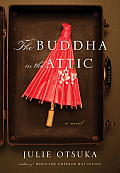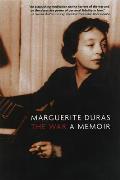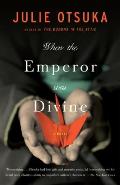
In the fall of my 25th year I had just moved to Bloomington, Indiana, to begin the graduate program in painting at Indiana University. My first critique was several weeks away and for the first time in my life I found myself unable — quite literally — to paint. The moment I put down a mark on the canvas, it looked "wrong" to me. So I would dip my rag into the turpentine and wipe away the mark and start all over again. But the second mark looked equally wrong. So I would wipe it away and begin again. And on it went. It was as if I'd suddenly become self-conscious about writing the letter
a. Nothing like this had ever happened to me before. As an undergraduate at Yale I had always painted freely and prolifically. I loved the medium of paint, its physicality, the gorgeous stuff of color, the mysterious square of the canvas where anything, it seemed, might happen. Painting was the one thing that I could imagine myself doing for the rest of my life. But at Indiana I began to doubt. And once I started, I could not stop. With each passing day I became more and more convinced that I could not paint. Because I could not paint.
 One afternoon, sick from the turpentine fumes, unable to stare at the blank canvas for more than a minute, worried that I would have nothing to show for my upcoming critique and certain that I was losing my mind, I put down my brushes and walked out of my studio. I had to try not to paint. Not knowing where else to go, I climbed onto my bike and rode over to that safe place of refuge — the library. I pulled a book off the shelf — The War, by Marguerite Duras — and sat down and began to read: "I found this diary in a couple of exercise books in the blue cupboards at Neauphle-le-Chateau. I have no recollection of having written it. I know I did, I know it was I who wrote it." And I did not stop until I had reached the last line: "And I knew he knew, knew that every hour of every day I was thinking, 'He didn't die in the concentration camp.'" When I looked up it was still afternoon, I was still in Bloomington, but for the first time in weeks, I had forgotten how afraid I was. Duras's memoir — a searing account of the month she spent waiting for her husband, Robert L., to return from Dachau at the end of the war — seemed so much more vivid than my own life, so much realer, and while reading it I had felt, however briefly, lifted out of myself. Which is, I think, what the act of reading is all about — getting lost in somebody else's story, the particularities of their wants and needs, the rhythms of their telling.
One afternoon, sick from the turpentine fumes, unable to stare at the blank canvas for more than a minute, worried that I would have nothing to show for my upcoming critique and certain that I was losing my mind, I put down my brushes and walked out of my studio. I had to try not to paint. Not knowing where else to go, I climbed onto my bike and rode over to that safe place of refuge — the library. I pulled a book off the shelf — The War, by Marguerite Duras — and sat down and began to read: "I found this diary in a couple of exercise books in the blue cupboards at Neauphle-le-Chateau. I have no recollection of having written it. I know I did, I know it was I who wrote it." And I did not stop until I had reached the last line: "And I knew he knew, knew that every hour of every day I was thinking, 'He didn't die in the concentration camp.'" When I looked up it was still afternoon, I was still in Bloomington, but for the first time in weeks, I had forgotten how afraid I was. Duras's memoir — a searing account of the month she spent waiting for her husband, Robert L., to return from Dachau at the end of the war — seemed so much more vivid than my own life, so much realer, and while reading it I had felt, however briefly, lifted out of myself. Which is, I think, what the act of reading is all about — getting lost in somebody else's story, the particularities of their wants and needs, the rhythms of their telling.
Since then I have read many other accounts of World War II, but none as intimate and close to the bone as Duras's. Her matter-of-fact tone, her spare, stripped-down prose and her short, staccato sentences perfectly mirror the excruciating agony of her waiting. "Today, yes, today Berlin will be taken," she writes. And then, "I'm so afraid, I'm not waiting any more. Is it all over? Is it?...I don't know where he is." And, finally, "I no longer exist." Duras's situation — she does not know if her husband, whom she has already decided to leave in order to bear another man's child, is dead or alive — is impossible. And yet go on she must. If not for her own sake, then for her husband's. And ultimately, one senses, for the sake of her writing.
 Reading Duras's memoir is one of the only memories I have of my time in Bloomington. The critique I had been dreading — my first and, as it turned out, my last — seems to have mostly vanished from my mind. I vaguely recall putting up a few paintings on the wall and everyone, myself included, just wanting to look away. Because my paintings looked like they had been painted by someone who did not know how to paint.
Reading Duras's memoir is one of the only memories I have of my time in Bloomington. The critique I had been dreading — my first and, as it turned out, my last — seems to have mostly vanished from my mind. I vaguely recall putting up a few paintings on the wall and everyone, myself included, just wanting to look away. Because my paintings looked like they had been painted by someone who did not know how to paint.
One month later I dropped out of graduate school, sold my bike, packed up my brushes and paints, and moved to New York City, where I began temping and trying to restart my life. It would be another five years before I would begin to write, and another 10 years after that before I published a novel about my own family's experience during the war (my grandfather was arrested by the FBI the day after Pearl Harbor was bombed, and my mother, uncle, and grandmother were interned for three years in Topaz, Utah) and someone asked me if I had read The Human Race by Robert Antelme. Because, I was told, the last scene of my novel, where the father returns home after the war, was very reminiscent of scenes from Antelme's book.
I had never heard of Robert Antelme and went home to look him up. He had been, I learned, a member of the French Resistance during WWII and was later deported to Buchenwald and then to a German labor camp. His memoir, The Human Race, is about the year he spent in that camp. His former wife was Marguerite Duras, who refers to him as "Robert L." in her memoir, The War.